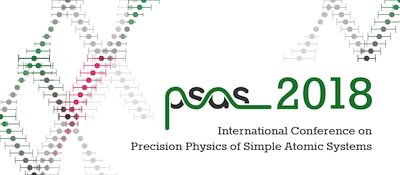Speaker
Description
Molecular hydrogen has emerged as a benchmark quantum test system for fundamental physics, where current high-precision measurements challenge the most accurate theoretical calculations that include relativistic and quantum electrodynamics (QED) contributions. Investigations on isotopic molecular species containing deuterium and tritium provide opportunities to expand such fundamental tests, that will aid in unravelling important higher-order mass-dependent corrections as well as nuclear size contributions to the level energy structure. In the context of the long-standing Amsterdam program on precision measurements in molecular hydrogen, recent measurements on HD and T$_2$ will be presented. Extremely weak transitions in the $(v=0\rightarrow 2)$ overtone band of the HD molecule were measured with sub-Doppler resolutions to obtain transition frequencies with three orders of magnitude improvement in accuracy. In a second study, precision measurements on the fundamental $(v=0\rightarrow 1)$ vibrational splittings of the radioactive T$_2$ molecule were also performed yielding transition energies that are $250$ times more accurate than previous studies. These benchmark values provide a test of QED theory in the hydrogen molecule, open up another avenue to pursue a solution to the proton radius puzzle, and point towards precision studies of nuclear structure. With further progress in the first principles calculations, future comparisons between experiment and theory will yield stronger constraints on new physics such as hypothetical fifth forces and extra dimensions.

